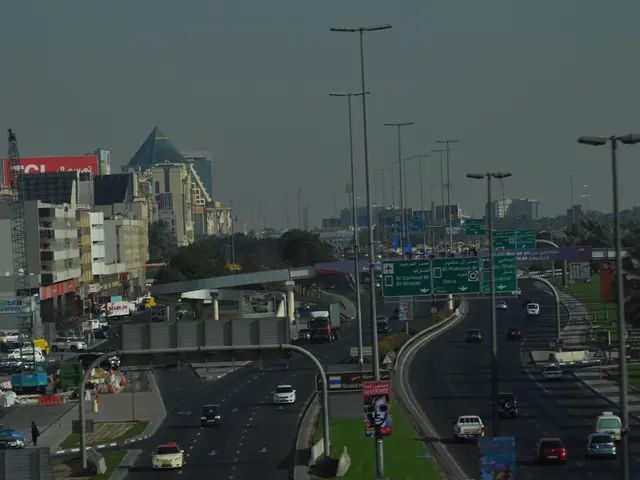Navigating Taiwan's delicate equilibrium in light of escalating regional disagreements
In the complex tapestry of global politics, Taiwan presents a profound dilemma for the international community. As a democratic and critical economic player, its support is sought, yet the geopolitical sensitivities rooted in the One-China framework must also be considered.
Recent events, such as the escalation in Ukraine, have underscored the dangers of escalating the 'status quo' into open conflict and the complexities of international rivalry in contested regions. Taiwan, like Ukraine, finds itself in a similar situation, with external powers' involvement shaping the dynamics on the ground, facing powerful neighbors asserting territorial claims.
Last week, a group of international journalists visited Taipei, meeting with senior Taiwanese officials and policy experts across various sectors. The visit coincided with the SEMICON Taiwan 2025 expo, attracting over a thousand international tech companies. Taiwan's role in the semiconductor sector, particularly in advanced chips, AI, and high-performance computing, was highlighted during the visit.
Taiwan's strategic importance extends beyond economic terms. For the U.S., it holds significance in its strategic interests in the Indo-Pacific region and global rivalry with China. However, the U.S. recognizes Taiwan as part of the People's Republic of China (PRC), but the Taiwan Relations Act seeks to deter any intervention on the island by providing defense capabilities.
Energy security is a pressing priority for Taiwan. The country aims to lower its energy import dependence to 70% with self-sufficiency through renewables by 2027. The main sources of LNG for Taiwan are 37% from Australia, 26% from Qatar, 11% from the U.S., and the rest from other countries. Taiwan also has reserves of grain that would last for 100 days and can survive on LNG reserves for 11 days (aiming to be 14 days by 2027).
Taiwanese officials emphasized a desire to preserve the 'status quo,' avoiding actions that could provoke Beijing while seeking greater international participation. This cautious approach is evident in Taiwan's pursuit of membership or observer status notably in the World Health Organization (WHO) and the International Civil Aviation Organization (ICAO). However, these attempts have been met with objections from China, reflecting the diplomatic challenges Taiwan faces in its quest for international recognition.
Beijing views Taiwan as a breakaway province whose reunification is essential to China's territorial integrity and national rejuvenation. China sees Taiwan's geostrategic location as critical to its national security and maritime strategy in the Indo-Pacific region. The PRC regards Taiwan's moves toward greater international recognition and its unofficial ties with foreign powers as provocations undermining sovereignty.
In response, Taiwan plans to increase defense spending to 5% of its gross domestic product (GDP) by 2030, signaling a cautious strengthening of its self-defense capabilities. This move is a testament to Taiwan's commitment to preserving its independence and sovereignty amidst the geopolitical tensions.
The geopolitical situation of the region, including the One-China policy, was discussed in candid conversations during the visit. As the international community navigates the complexities of supporting Taiwan, it is crucial to maintain a balanced approach that respects both democratic values and geopolitical sensitivities.








